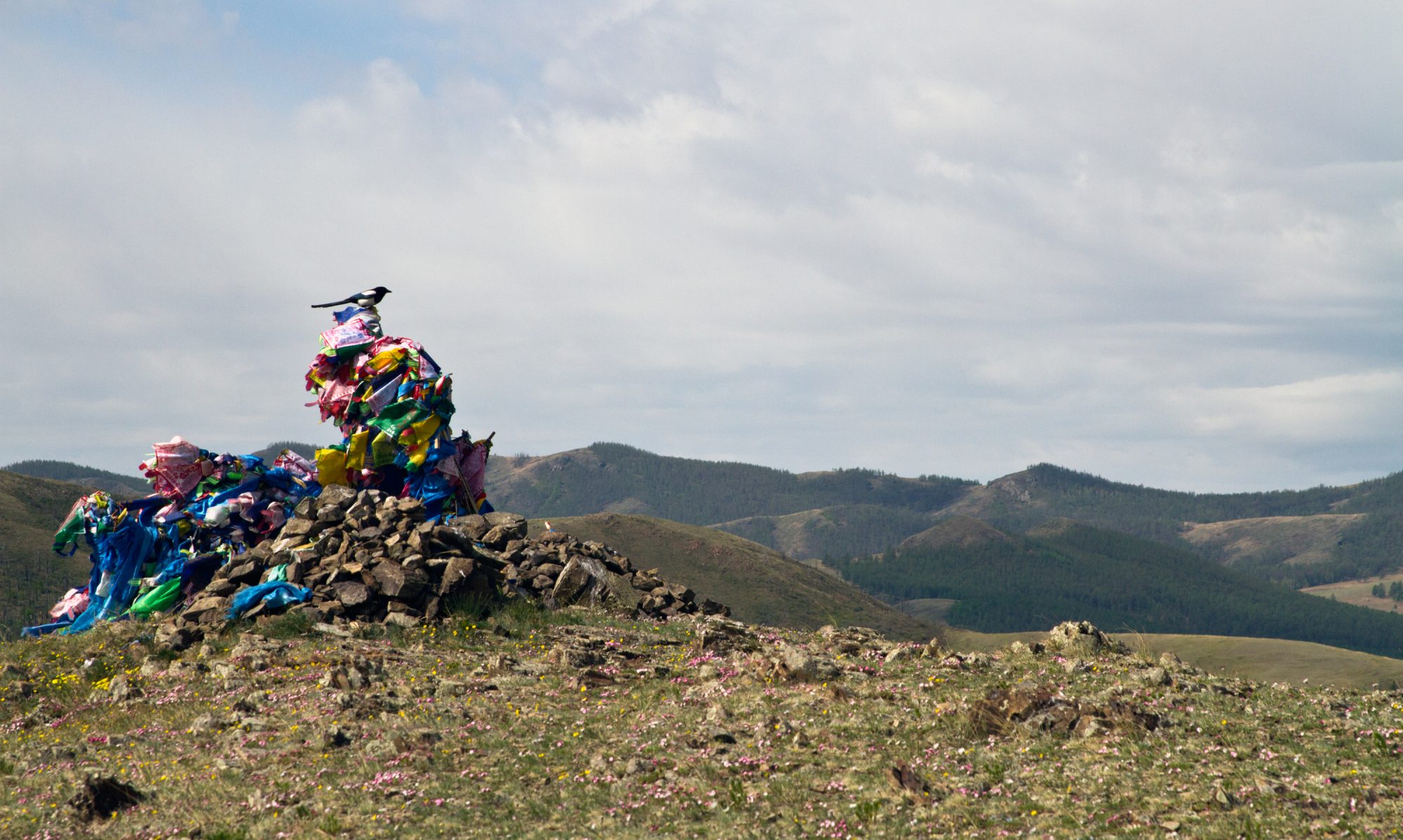Technology, or new media, or google, or somebody, has helped take the mystery out. There are plenty of blogs written by Peace Corps volunteers in the Caucasus. And I actually recognize a lot of what they describe, though I’ve never been near there. There’s a certain post-Sovietness that seems to be common to where I was (from September 2002 until January 2004, I lived in a small, ethnically Buryat-Mongol town in Eastern Siberia).
I can look forward to the same old exhortations to drink, the same condescending and infantalizing behavior by those who know me, the personal questions from strangers, unasked-for honesty, aggressive dogs, and mini-celebrity status. The same catechism of questions, even, persisting unchanged over thousands of miles of the previous Evil Empire. How much do teachers make, are you looking for a wife, is our vodka better than yours, how do you say kaif in English.
Just in the past couple days, I’ve started to dwell on old memories and think of things I hadn’t thought of for a long time. The memories seem to come compulsively. In certain moods, I have difficulty keeping violent images, thoughts of violent harm to my body, getting sliced to ribbons, getting hanged, or shot, or punched, I have a hard time keeping representations of harm to myself out of my mind. There’s a force to the thought that is very like the force the thought is of, the same contempt for my own integrity. These memories have the same compulsive feeling to them. But I can’t be sure what to do with them. I’m not revolted at them, nor am I really pleased by them. There’s a curious lack of affect to them. They’re like a dull movie, or more exactly, like someone else’s memories.
Soon after I moved into a new home in October of my first year, I got pneumonia. My host family was sure I had gotten it from running around without a hat off. My habit had been to walk around the hills in the afternoons, I stopped that because of the weather, soon after. There were lots of things to find. Over a hill, one hundred feet away from my door, there were no dwellings, no civilization for miles. But it was like civilization had walked through, taking mile-long strides, its hands in its pockets overstuffed with junk, dropping bits of garbage everywhere without taking notice. Once I found a dry stream bed filled with children’s shoes that may have been there since the previous winter. Abandoned vehicles, a sofa, a filing cabinet, a tire. Or a window frame, or piles of rotting documents, or a lonesome boot in the middle of a flat, empty plain.
I had lost my hat somewhere I can’t remember where. Looking back I was a little out of control. I can remember walking for it seemed almost an hour to the local temple, outside of town, and nearly fainting on the way, because I had forgotten to eat. At any rate, this was after I had been in my new home for two weeks or so, I went on my usual afternoon walk, it was cold and windy, I thought my hood would be protection enough. It may have been but a couple days after I was running a temperature and feeling strange. I was sent to the clinic. I remember not wanting to take that advice, but it turned out to be good.
I had trouble understanding the doctor because her face mask made it impossible to read her lips. She gave me antibiotics, told me to rest. I remember being asked how I was feeling, I told them my brains were boiling. I was giddy, and laughing. I had a temperature of 104 but I felt great. Exhilarated, grinning, dancing in the front hall. I only stayed home a week or so, then was back at work, But I remember one teacher telling me it looked like I had really grown up, she couldn’t say how, but I really looked older. Later she said, no I’d just lost weight.
It’s a persistent memory, the feeling of the fever, the light glow I had, like I had witnessed some kind of glorious event, but only at a distance, and happening to someone I wasn’t all that close to, so the effect wasn’t very strong but it was still in that genre. The taste of the memory somehow lingers on the back of my tongue. From that point on, however, I felt at home, I got used to the repeated questions, the stares, I even began to speak more fluently. I started to make friends and feel content. It was as if the sickness was a gate I had to pass through, a staging area while I switched horses, on my way to another stage of life.
